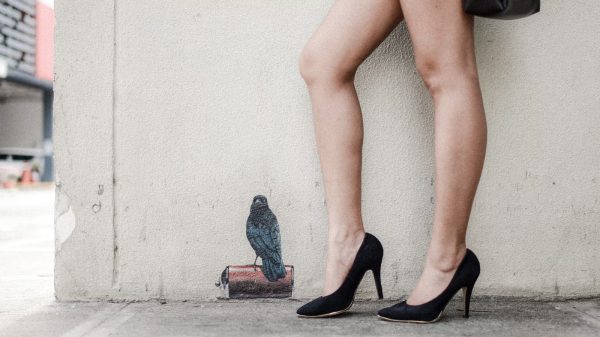When she was still “coming to terms with my sexual orientation in college, I began researching on the (GLBTQIA) movement in the Philippines – I started reading books, magazines, and online articles about lesbian feminist theory and just about anything about GLBTQIA rights. I have always been interested in human rights advocacy. But, after reading them, I discovered that what I wanted to do is advance the rights of GLBTQIAs in the country,” recalls Anne Lim, who eventually got “involved in several GLBTQIA organizations, including the Rainbow Rights Project (R-Rights) Inc. where I was fortunate enough to be the founding treasurer and coordinator for community organizing and networking.”
After realizing, though, that “there is a need to strengthen the movement’s grassroots base,” Lim co-founded with five of her friends the Gay and Lesbian Activist Network for Gender Equality (GALANG), a non-stock, non-profit corporation that “envisions a society free from homophobia and discrimination based on sex, gender identity, gender expression, and sexual orientation.”
“We are dedicated to empowering the Filipino GLBTQIA sector through community organizing and capacity building, and by providing them with a safe space free from homophobia and discrimination,” Lim says.
Not that it has been easy.
“My biggest challenge as a GLBTQIA rights advocate (I embraced the word ‘advocate’ and believe it is what describes me best) is dealing with the thought that what we envision in GALANG — a society free from homophobia and discrimination — would probably not happen all at once in my lifetime. Recently, a reporter asked me if I advocate for same-sex marriage. Although I wanted to scream: yes, of course, I want same-sex marriage to be legalized in the country (as I am in a six-year committed relationship myself), I believe that advocating for same-sex marriage could distract us from focusing on the more pressing issues that concern Filipino GLBTQIAs, (such as) poverty, unemployment, lack of education, discrimination, rape and violence,” Lim says.
But Lim believes she has “to choose my fights and focus on these issues first and foremost, not because economic rights are more important than civil rights, but because we need all hands in fighting for our rights, and we cannot expect fellow GLBTQIAs to fight for our rights if they have to worry about where to get their next meal, or being raped,” she says.
FACING CHALLENGES
It has not been easy, too, to draw “mainstream GLBTQIAs into the movement,” Lim notes. “Perhaps some fellow GLBTQIAs feel that, since they have good jobs and lead comfortable lives, they no longer need to fight for GLBTQIA rights until they are turned away from a club for ‘cross-dressing’ or harassed by police officers (bona fide or not) for publicly showing affection toward their partners. I witness this seeming apathy toward the movement whenever I get invited to exclusive parties where hundreds attend compared to the handful that show up in meetings and activities in support of, say, the Pride March or anti-discrimination policies. Although I cannot force — and would not want to force — fellow GLBTQIAs to join the movement, I do not tire of encouraging them to get out of their comfort zones and make theirs marks felt. GLBTQIA rights advocacy is not just about rallying in the streets and wielding placards — although there is certainly nothing wrong with that — it is also about blogging about our issues, writing about GLBTQIA rights, and attending fundraising events in support of the GLBTQIA cause. It can also be as simple as standing up to an arrogant co-worker when s/he makes a homophobic remark or joke.”

Anne Lim: “My biggest challenge as a LGBT rights advocate (I embraced the word ‘advocate’ and believe it is what describes me best) is dealing with the thought that what we envision in GALANG — a society free from homophobia and discrimination — would probably not happen all at once in my lifetime.”
GOING PLACES
GALANG recently conducted a focus group discussion (FGD) in Barangay Bagbag in Novaliches, Quezon City, one of GALANG’s three pilot communities, to assess the training needs of the GLBTQIAs in the community. “Surprisingly, the discussion remained light even as the participants willingly shared their tales of abuse, unemployment, and poverty,” says Lim, who left Barangay Bagbag “with (a) heavy heart,” though with “more resolve, knowing that the community needs immediate help, and (with) more confidence knowing that GALANG has its heart in the right place, so to speak, in aiming to help community-based GLBTQIAs. Being part of the effort to bring GLBTQIA advocacy down to the level of those who need help the most is already a big achievement for me.”
Lim believes there’s much to be done.
“At a time where debates on same-sex marriage are raging elsewhere in the world, the biggest problem that confronts the Filipino GLBTQIA community is still homophobia. It is homophobia that keeps many Filipinos away from their families. It is homophobia that prevents qualified GLBTQIAs from getting hired. It is homophobia that gets GLBTQIAs beaten up by their own fathers or raped by their own brothers,” she says.
Lim adds: “I believe the best way to fight homophobia is by emerging from the shadows of shame, guilt or fear. By living with pride, we can show that we, GLBTQIAs, are invaluable members of society whether it is in business, the arts, the sciences, social development, politics, et cetera.”
LOOKING FORWARD
“Offhand, I can think of three (goals I still want to achieve). First, as a start-up non-profit organization, GALANG is rich with promise but poor in resources. To raise funds, we have passed the hat in our free GLBTQIA film showings and launch party. We also recently sold Pride March key chains and stickers — all sold-out, I’m proud to say. Of course, donations and grants are greatly appreciated, as sustainability is always an issue for non-government organizations like GALANG,” Lim says. “Personally, however, I want to adopt and develop a viable social enterprise model for GALANG so that we do not have to depend on dole-outs. We are currently in the process of consulting with microfinance experts and other development professionals, and we are grateful that a lot of them believe in what GALANG stands for and are willing to extend their assistance for free.”
Lim says she would like to see “more mainstream GLBTQIAs involved in the movement. Activist hardliners are good, but the mix is better if it is balanced with cooler heads. One does not have to be G&D (grim and determined) all the time to be an advocate. A lesbian entrepreneur, a gay physical therapist, a bisexual call center supervisor, and a transgender IT professional can all be GLBTQIA rights advocates. In fact, they already are,” she says. “I want the GLBTQIA voice to be heard not just as a sound bite for the evening news but, more importantly, as an important stakeholder in local and national policy-making. At the end of the day, this is what GALANG is about — making the voice of grassroots GLBTQIAs heard, and heard loud and clear.”
There’s optimism, nonetheless.
“I am most inspired by the lesbian women I work with who are all professionals in their own right, yet find the time and energy to stay dedicated to the GLBTQIA cause. In GALANG alone, all our volunteers hold day jobs but somehow still manage to spend late nights and full weekends raising funds for our training activities, going to communities to touch base with grassroots GLBTQIAs, and marching proudly during the annual Pride March. I feel blessed to be working with phenomenal women who inspire me to strive harder to achieve the goals that we have set for our organization and for the GLBTQIA community,” Lim ends.
"If someone asked you about me, about what I do for a living, it's to 'weave words'," says Kiki Tan, who has been a writer "for as long as I care to remember." With this, this one writes about... anything and everything.

































































